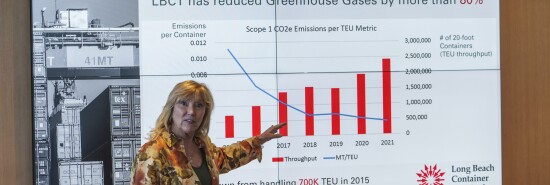
Biden insists on anti-worker, anti-democracy ESG principles
Washington Examiner
Video Embed
President Joe Biden’s Labor Department instituted a new environmental, social, and governance, or ESG, rule in May 2021. The rule has been described lazily as an attempt to promote corporate “sustainability.” But in fact, what it does is protect irresponsible investment managers from lawsuits if they ignore companies’ profitability and instead allocate investors’ and pensioners’ assets to companies based on their level of political correctness.
This is not an insignificant issue, nor is it a right-wing bogeyman. Last year, eight of the 10 largest ESG funds underperformed the S&P 500 Index, seeing yearly losses as great as twice those of the broad-based index. In short, this form of investing is only for those who deliberately seek it out. Investors whose money was misallocated without their knowledge due to social justice considerations should be permitted to sue and recoup their losses. Managers who misserve their clients in such a manner most certainly do not deserve Biden’s legal protection.
RAIL SAFETY BILL IS BIPARTISAN WIN FOR RURAL COMMUNITIES
On a bipartisan basis, Congress has wisely voted to strike Biden’s rule from the books under the Congressional Review Act. Biden’s veto to protect his own ill-advised rule comes as no surprise, but that makes it no less disappointing.
Investors can do whatever they want with their own money. But fiduciaries are different. They have responsibilities to the investors and pensioners whose money they manage. They have no business politicizing finance through ESG on someone else’s dime. In fact, they have a moral and legal responsibility to make investment decisions with other people’s retirement money based on financial considerations, not on how “diverse” a company’s workforce is or how “green” its business or charitable activities are.
ESG represents a genuine threat to the portfolios of millions of people working toward retirement. But more ominously, it is a threat to democracy because ESG’s entire point is to use the tools of plutocracy — cash and corporate power — to impose policies that voters repeatedly and steadfastly reject. The entire point of ESG is to use money and influence to force radical policies on a public that has repeatedly shown it will not vote for or even tolerate such policies.
Take, for example, environmentalism — the “E” of ESG. Witness the political pressure congressional Democrats came under last summer when gas prices reached their peak. Despite their party’s perennial opposition to fossil fuel production and its erroneous supposition that the nation can just “transition” away from oil and gas, House Democrats panicked and went so far as to feign outrage toward oil company executives because they had supposedly failed to produce enough of their product.
So Democrats understand that global warming alarmism is a political nonstarter. People want cheap gas — anything less could lead to an electoral wipeout for Biden’s party. This is where ESG comes in. Unable to impose policies through the legislative process that would constrict energy supplies, or perhaps curtail gun rights or force diversity quotas or any number of other useless left-wing claptrap, they simply deputize Wall Street plutocrats to impose those policies instead. Their goal is to force upon consumers higher energy prices, greater discomfort, and greater inconvenience, all while avoiding political accountability.
As with the recent Twitter censorship scandal, in which the FBI and certain politicians outrageously outsourced censorship of American citizens to a private company, Democrats are outsourcing the most unpopular parts of their agenda to private companies.
In a democracy, voters and public officials make policy, not activist shareholders. And although there is nothing wrong with using your own money to engage in political activism, it is immoral and should be illegal to use other people’s retirement money against them as ESG does.
The federal government has no business creating rules that attempt to make politically favored corporate policies artificially valuable. This rule represents a fraud against investors and a violation of various entities’ fiduciary duties. The next president should make its rescission a top priority.
